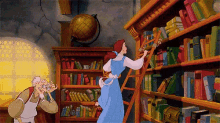In this article, I will delve into the woven tapestry of the ever-changing landscape of writing profound articles.
Yeah, no. I won't play with you. I'll admit - my first article for The Teen Magazine was bad. But I persisted, and over my journey of writing 30 articles, I've learned what to do, and more importantly, what to avoid when writing.
Let us slide into your dms 🥰
Get notified of top trending articles like this one every week! (we won't spam you)"In This Article"
This phrase gives off - “I can't think of a clever hook, so I'll just use this." Be creative! Or, just get straight to your point with a clear thesis. Writing “in this article” is amateurish and reads like a 2nd grader wrote it.

Take the Quiz: Which Harry Potter Character Are You?
Find out which character matches your personality!
"I Hope This Article…"
What do you mean by “you hope?” If you've written concisely and enough, you should know that your article has helped the reader. There's no need to write this.
Let's say you're writing an article about setting time limits on your phone - your conclusion shouldn't be “I hope this article has helped you….” But rather, “Through XYZ, you can set healthy boundaries with your digital devices.” It comes off as more formal and concise simultaneously.
ChatGPT
Please avoid these phrases, even if they are your words.
- “XYZ weaves a tapestry”
- “Delves into”
- “Everchanging landscape”
- “Timeless clamor”
- “In the realm of”
Look - ChatGPT is helpful for a school assignment, but when you're writing for something like The Teen Magazine or your blog, it's better to use your voice and know your audience. If you're writing an article about the best Roblox games, it shouldn't start like, “In this article, I will delve into the ever-changing landscape of Roblox.”
Now, ChatGPT is safe to a certain extent. If you want to fix some basic grammar mistakes or clarity suggestions, go for it. Another benefit of ChatGPT is asking it, “Give me a list of synonyms for XYZ.” You can add flavor to your writing through these prompts.
Cliches
I try to balance my writing. At first, I was going haywire, punching in a “two peas in a pod” or a “better safe than sorry” every other line. Originality makes writing more fun to read. The balance is the hard part - you don't want to overcook your argument with creativity, so sometimes, relying on a cliche is ok.
"The History of XYZ"
I was writing a pie article for Thanksgiving, and because I was short of my word count, I added an irrelevant section on “the history of pies.” Don't get me wrong - I'm sure some readers enjoyed reading about the Roman conquest of rhubarb tarts, but anyone can simply google it. This is important, especially for argumentative essays. Most publications have an “Opinions” section, and they're all structured like a normal essay. So, if you're writing an article about why we shouldn't have the Ivy League, have some background information, but don't make half of the essay about the history.
Vocabulary
I've always tended to add dozens of SAT words in my writing. It's not the worst habit per se; at least I can get some extra practice in.
Vocabulary should clarify your writing; that's why you should focus on specificity and preciseness. For instance, instead of writing “boring cliches” ad nauseam, you should replace them with “hackneyed phrases” or “platitudes” on occasion.
No Confidence
In my opinion, I believe I think…
Huh? You think? When writing an article, you should conduct extensive research, and fact-checking through multiple sources.
And your thesis should be as clear as the sky. These phrases are vague and underconfident and undermine the flow of an article. Granted, you might be writing an opinion piece, but still - be assertive. That's why they call it an assertion. Which sounds better?
- In my opinion, books shouldn't be banned.
- Books shouldn't be banned.
Ending with someone else's quote
I have done this many times, and I regret it retrospectively. Ultimately, your articles are your thinking. If something comes from your brain, it'll be much more interesting.
A refreshing candid perspective is what people want! On the other hand, if you're writing an interview article or an obituary, that's different.
Boring transitions or overcooking them
Firstly Secondly Thirdly…
Go for something else! And don't hesitate to use “but” or “and.” For some inexplicable reason, we have been taught to avoid starting a sentence with a conjunction. I repeat - and I repeat - it is perfectly fine to do so.
A lot of essays and articles read like jumbled rigmarole. The points are there, and they make logical sense, but the way they are structured is nonsensical. I advise using some new transitions and planning your articles before you write them. Take a day to brainstorm ideas and another to structure them accordingly.
Try using some new transitions in your writing.
- By happenstance
- Nonetheless
- Nevertheless
- Albeit
- Likewise
- Sequentially
- Notwithstanding
- Conversely or Inversely
Not Editing
It's not up to the editor to fix everything. Even to the most keen eye, a misspelled word or misplaced exclamation mark could slip by.
I always run my pieces through Grammarly to clean them up. Then, I like to backtrack my writing through ChatGPT with the prompt, “Check for any clarity/punctuation/grammar issues.” After these edits, I put my refined work onto a Google Doc and changed the mode to “Suggesting Changes.” It's important to put your edits and make sure it's your voice before sending it off to the editors.
Final Note: Conclusions
I'll provide an example of a conclusion that you should never put onto paper.
I hope that this article has helped you. In the realm of writing, you should edit and avoid these things. Secondly, I'd like to add a quote by Maya Angelou - “Try to be a rainbow in someone's cloud.”
I love Maya Angelou. If I could, I'd spend weeks honoring her works and quotes, but readers want to hear your words. Let's go for a more enhanced ending.
I am still improving my writing skills. I have barely started, but I feel a sense of belonging in a community of writers with the same goal - to be better every day. And one thing that I have learned is every article is different.
Whether it be Indonesian musical instruments, ancient Greek pie recipes, or allusions in Doja Cat's albums, your overarching goal should be to learn something from writing an article. A bigger goal - making sure your readers understand the message. That's what writing is really about.













